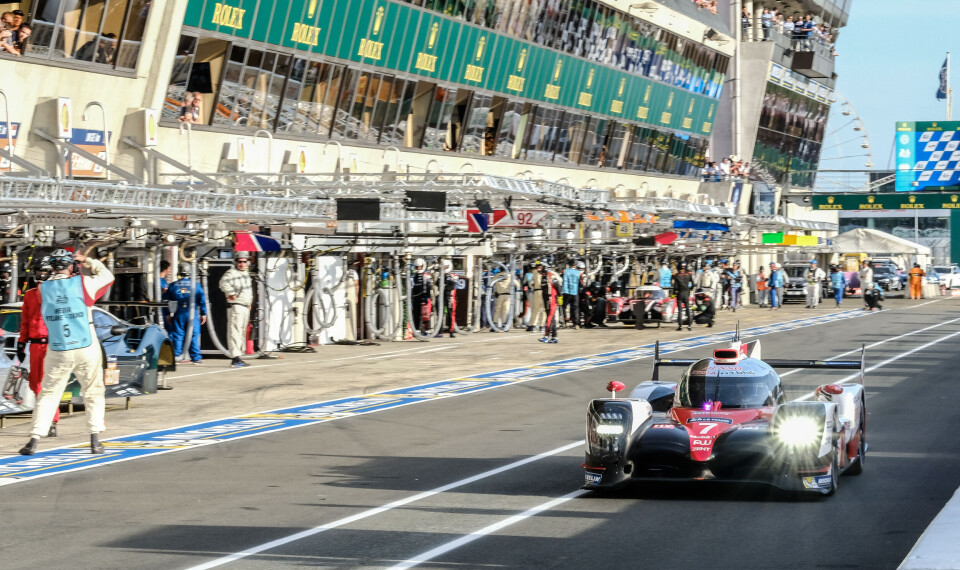-
France public transport fares should double, claims report to Transport Ministry
French passenger fares currently cover less than a fifth of the total service cost
-
Processionary caterpillars return across France, warn local authorities
Insect has been seen two months earlier than usual in many areas
-
EES: Why am I fingerprinted every time at Nice airport?
Phase-in period is continuing and technical improvements are still awaited
New Hypercar class debuts at French 24 Hours of Le Mans race
The new category, made up of Le Mans Hypercar and Le Mans Daytona h cars, promises to bring bigger manufacturers back into the historic endurance race, challenging Toyota’s monopoly over the title

A new ‘Hypercar’ class will be making its debut at this weekend’s 24 Hours of Le Mans race.
The 24 Hours of Le Mans is the world’s oldest endurance car racing event – having begun in 1923 – and is held annually on the Circuit de la Sarthe near Le Mans in northwestern France.
Teams are challenged with maintaining high speeds while also making sure their cars can run for 24 hours without breaking down.
The 89th edition of the race will take place between 16:00 today (August 21) and tomorrow, having been postponed in June due to the Covid-19 pandemic.
The new Le Mans Hypercar (LMH) replaces the old Le Mans Prototype (LMP1) class, and will compete alongside the Le Mans Daytona h (LMDh) cars under the Hypercar umbrella.
Unlike its LMP1 predecessor, Hypercars can either be competition-spec versions of existing hypercars or specially designed prototypes that can also use hybrid power if the manufacturers see fit.
The new LMH category – first announced in 2019 – is heavier, slower and therefore cheaper than the LMP1, and can also compete in the IMSA SportsCar Championship based in the US and Canada.
This promises to bring leading manufacturers – who had previously withdrawn from the French endurance race – back into the field.
This year’s event will see Hypercar entries from Toyota, Glickenhaus and Alpine, with Peugeot, Audi, Porsche and Ferrari having announced plans to join them by 2024.
With Toyota having won the 24 Hours of Le Mans title every year since 2018, it is thought that the reintroduction of these manufacturers will inject more competition into the sport.
This year, Toyota’s two GR010 Hybrid cars are still expected to top the leaderboard, although it will have to avoid any mistakes in order to avoid dropping below Alpine and its A480.
Although less difficult to produce and therefore more inclusive, Hypercars cannot match the speeds reached by the LMP1 class, which achieved a record lap time of 3’14”791 with Toyota in 2017.
While an LMP1 would weigh between 855 and 875 kg, the minimum weight for Hypercars is 1030 kg, and its brake horsepower has also been lowered.
























